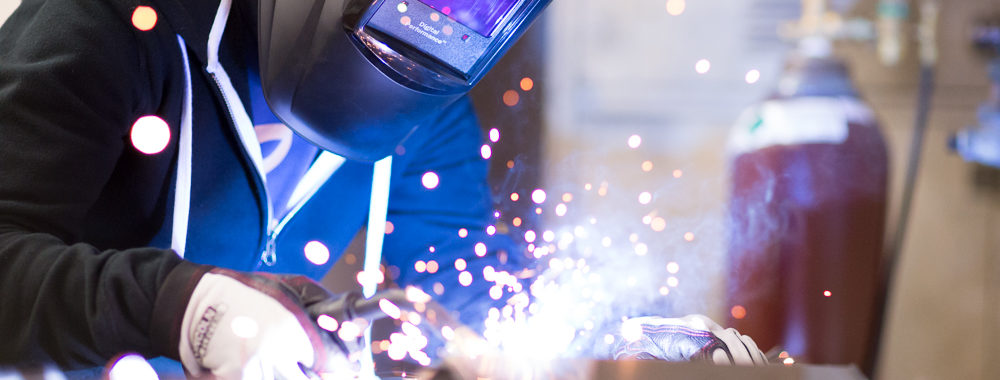
The Jacobs Institute Innovation Catalysts, made possible by the Eustace-Kwan Family Foundation, is a new grant program that provides an avenue for Berkeley’s student innovators to unlock new potential in their projects. After a selection process led by the Jacobs Institute’s Student Advisory Board, we are pleased to announce the inaugural cohort of grant recipients, who will receive funding, mentorship, and resources at Jacobs Hall and the CITRIS Invention Lab as they build on their project ideas over the spring semester. The cohort encompasses a broad swath of student design innovation, with 16 majors or degree programs represented and a mix of projects that have emerged from courses, individual experimentation, and more.
Ignite grants help push projects to the next stage, providing support for teams with existing prototypes and demonstrated potential for impact. This spring, six teams, working in fields from socially engaged art to medicine, will draw from funding (up to $2000) and other resources to develop their projects.
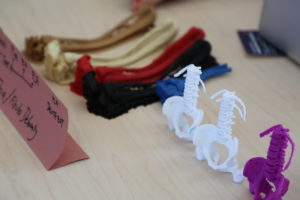 3D Printing Anatomical Models for Orthopedic Surgery
3D Printing Anatomical Models for Orthopedic Surgery
Daniel Beckerman, Woojoo Kim
In collaboration with UCSF’s orthopedic surgery department, this team has been exploring how 3D printing could open opportunities to produce patient-specific models for surgery planning and education. To date, they have worked with several 3D printers to investigate ideal materials and processes, testing results with practitioners at UCSF. With their Ignite grant, they hope to expand on this research, developing a “best practices” report that might provide a foundation at UCSF and beyond for applying cost-effective 3D printing methods to surgical simulation.
Bank of Hysteria
Jessica Liu, Rebecca Milman, Malika Imhotep, Phyllis Thai, Frances Thai
Fall 2017 saw the launch of the Bank of Hysteria project, which provides a space for womxn, femmes, and gender-nonconforming community members to express and validate their anger, an action often discouraged by societal norms or safety fears. The project team set up a number that people could call or text-message with their thoughts; the transcriptions of these messages then became “Rage Receipts” that were printed from an installation designed to resemble a bank window — creating a material representation of emotions that are valid and worthy of investment. With their Ignite grant, the team plans to further develop and scale the project, with goals that include building a more durable installation, streamlining operations, and developing an online resource guide.
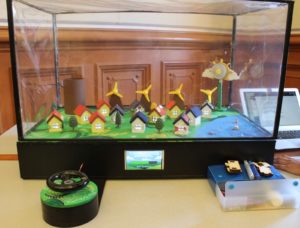 Climate Kids
Climate Kids
Gabriela Cibils, Parina Gujral, Alyssa Li, Franchesca Spektor
The Climate Kids project began with the question, “How could we best teach the next generation about climate change?” In order to make climate change easier for children to engage with, the team has created a prototype for an interactive display that takes the form of an enclosed village ecosystem and responds to changes in a classroom’s energy expenditure. As students see the consequences of energy use and work together to generate energy for their “ecosystem,” they develop a greater, more personal understanding of the issue. The team plans to use their Ignite grant to further develop and refine their prototype, and to conduct iterative user testing with local schools.
JARL (Just Another Robotic Limb)
Josephine Koe, Shayna Kothari, Aryan Luthra, Rachel Thomasson, Brent Yi
The JARL project aims to develop a low-cost, wheelchair-mounted robotic arm that helps people with physical disabilities to perform daily activities that otherwise prove challenging. Working closely with a need-knower with quadriplegia who is hoping to find a low-cost alternative to existing products, the team has made significant progress on mechanical design and controls. They plan to use their Ignite grant to continue to iterate on their designs and to produce a more refined, user-ready prototype, in part by using high-end 3D printers at Jacobs Hall.
Surgical Instrument Reprocessing in Low-Resource Settings
Jovanny Guillen, Tatiana Jansen, Irene Kim
This project aims to develop a device to reprocess surgical instruments to reduce the prevalence of surgical site infections, which are the most frequently reported hospital-acquired infections and can be costly to treat. In fall 2017, the team began the engineering design process for a surgical instrument washer, learning from experts as they explored the needs and current approaches of hospital staff in low-resource settings, particularly in developing countries. With their Ignite grant, they plan to continue development and testing of their prototype, which focuses on the removal of bacteria and biofilm, hoping to arrive at optimal specifications for the device.
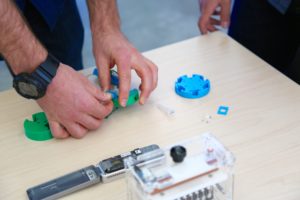 The Lab in a Backpack: Designing Low-Cost, Portable Tools for Science and Education
The Lab in a Backpack: Designing Low-Cost, Portable Tools for Science and Education
Aaron Pomerantz
Access to scientific tools is typically limited to people working in labs, as equipment can be costly and bulky. The Lab in a Backpack project aims to broaden this access, facilitating uses like remote field research or STEM education through the development of low-cost scientific instruments. In fall 2017, Aaron Pomerantz created a prototype for a 3D-printed, hand-powered centrifuge capable of performing rapid DNA extractions. He plans to use his Ignite grant to further develop this prototype, including through field testing, and to work on other portable lab tools.
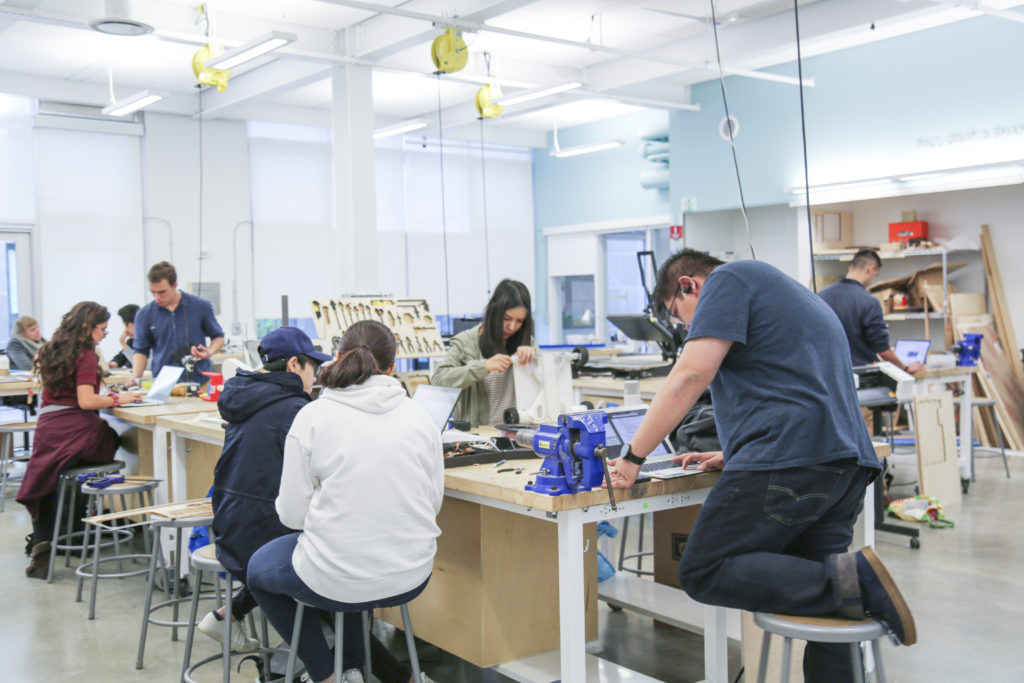
Spark grants provide resources for early-stage projects or experimental concepts. Four wide-ranging project ideas will come to life with the help of funding (up to $500) and other support this spring.
Bubbles: Combining Microbubbles and Ultrasound for Breast and Prostate Cancer Detection
Ashna Jasuja, Yasmine Kehnemouyi, Abhinav Koppu
This team hopes to use the principles of signal processing and microbubble fabrication to create a low-cost, radiation-free, and accessible cancer screening device that breast and prostate cancer survivors can use in a local lab to check for local cancer recurrence. The team has consulted with experts as they have developed their concept, and plans to use their Spark grant to begin working on prototyping and testing their device.
FaceMod
Soravis Prakkamakul
FaceMod is an app that allows musicians to use their facial expressions to control musical interfaces, such as guitar effects, synthesizers, and drum machines. To date, Soravis Prakkamakul has created a web-based prototype of the app. With his Spark grant, he plans to develop a more robust prototype that could be used during live performances.
Lux Sensor
Matthew Gaston, Matthew Liu, Tyler Sano, Yash Shah
Revenue in the biochemical processing industry can be negatively affected by biological contamination of fermentation fluid, which slows system throughput considerably. The Fiat Lux Labs team aims to address this problem with a device that provides real-time diagnostic information on contamination, allowing users to respond quickly. Thus far, the team has interviewed and surveyed stakeholders to validate the need for their product, done early testing, and developed a technical plan for building their device. They plan to use their Spark grant to build and iterate on the device.
The Electromobilizing Sleeve
Naser Abdelrahman
Naser Abdelrahman has developed a concept for an Electromobilizing Sleeve, a wearable device intended to enable developers to build customized solutions for those living with limb paralysis that is in part inspired by recent research on a “neural bypass” system to reconnect paralyzed patients’ motor cortices to their neurally-disconnected limbs. Abdelrahman hopes to use his Spark grant to begin to prototype his conceptualized device.